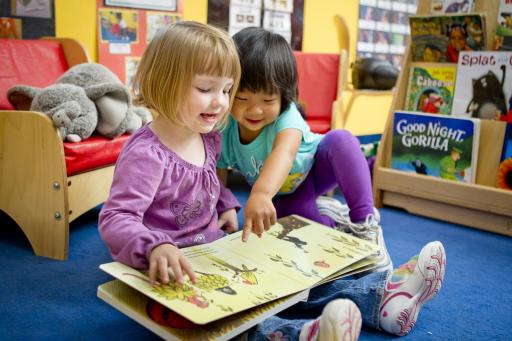
This course is one in a series of Early Years Scotland mini self study courses to support effective early years practice and will explore approaches to practice that will enhance the relationships
and experiences you offer in your early years setting to support positive
behaviour.
By considering the reasons behind children's behaviour and looking at behaviour management through the eyes of the theorists, you will start to develop your own strategies and methods to ensure that children make the most out of their learning.

This course is one in a series of Early Years Scotland mini self study courses to support effective early years practice and will increase understanding and knowledge of literacy development in the early years.
Participants will:
- increase and strengthen knowledge and understanding of literacy in early years
- understand the importance of engaging children in literacy-rich experiences to increase their conceptual understanding in language
- understand how to address factors that affect limited progress, for example, vocabulary acquisition
- understand and confidently utilise strategies to support effective approaches to early language development in settings
- feel confident and know how to apply this learning to practice with children and families.

This course is one in a series of Early Years Scotland mini self study courses to support effective early years practice and will increase understanding and knowledge of numeracy and maths in the early years.
Participants will:
- increase and strengthen their own knowledge and understanding of developmentally appropriate early learning and the importance of building on children’s previous knowledge and experience
- understand the importance of engaging children in a range of maths and numeracy experiences to increase key knowledge and skills
- understand and confidently utilise strategies to support effective approaches to early maths development in settings
- feel confident and know how to apply this learning to their practice with children and families
This course is one in a series of Early Years Scotland mini self study courses to support effective early years practice and will increase understanding around, and awareness of, autism.
The aims of the course are to explore definitions and key characteristics of autism, and suggests ways practitioners can make a difference to those on, or suspected of being, on the spectrum.
This course is one in a series of Early Years Scotland mini self study courses to support effective early years practice and will increase understanding of the importance of brain development in the early years.
Practitioners will explore:
- Early brain development and the impact of interactions and attachment on the developing brain:
- How Adverse Childhood Experiences can affect the health of babies and children.
Aims of the Course:
- Have a good understanding of the importance of the first few years in respect of brain development
- To support an understanding of healthy brain development in all children.

This course is one in a series of courses to support effective early years practice and will inspire you to recognise and support schematic play for our youngest children.
Practitioners will explore:
- How to use schematic play to support children’s play and learning and develop a creative curriculum
- The importance of schemas in children's self-initiated and spontaneous play and why it should be valued and embedded in early childhood practice.
Aims of the course:
- Examine schematic play and the theories behind it
- Be able to identify a range of schemas
- Consider observations and planning to support schematic play